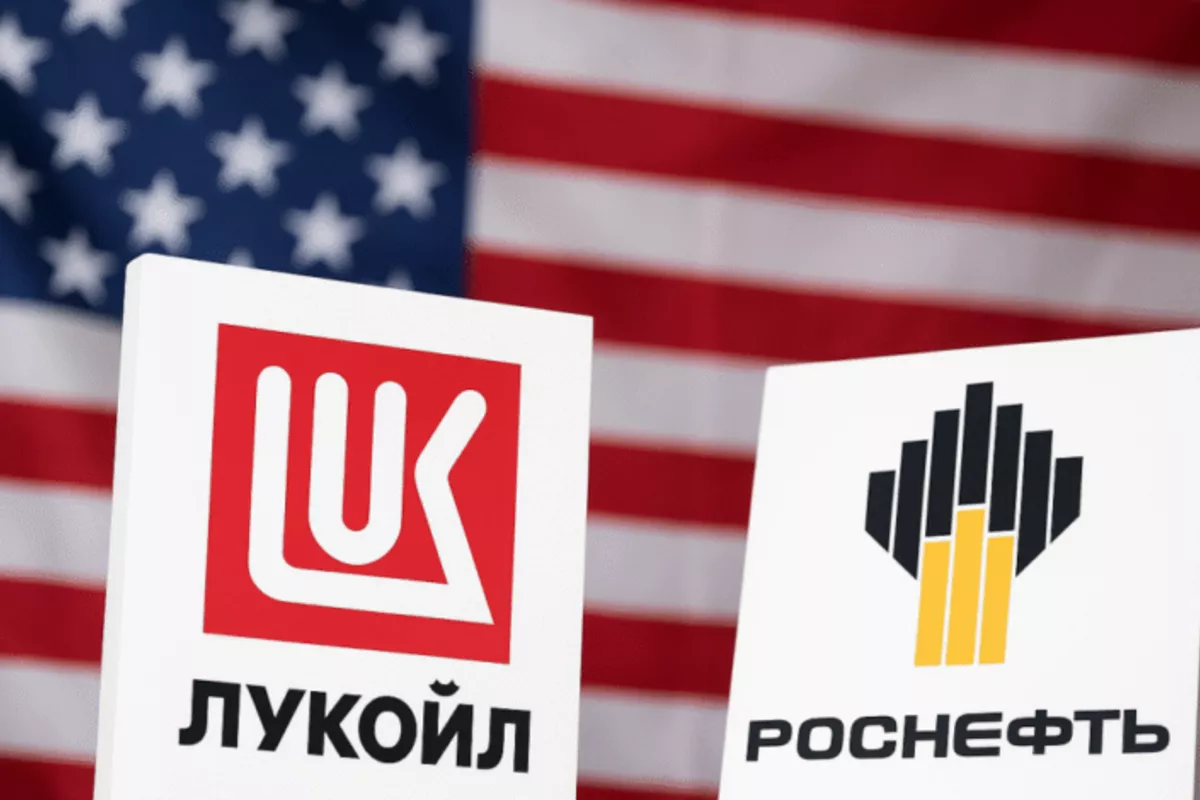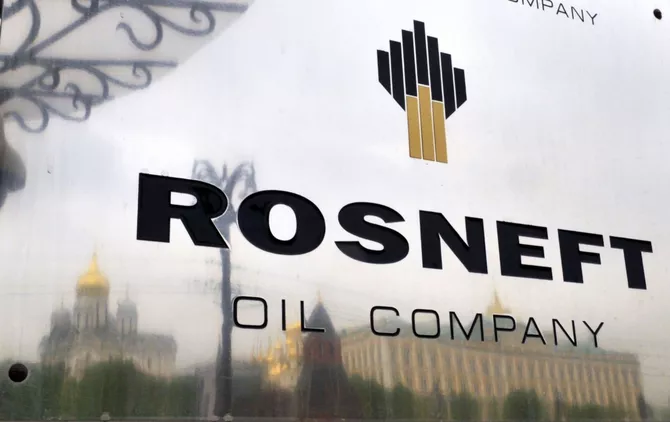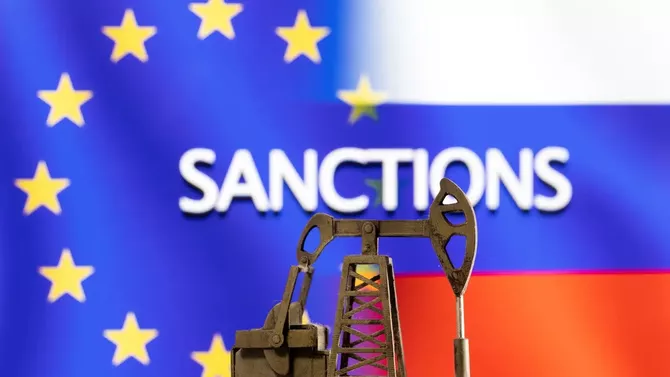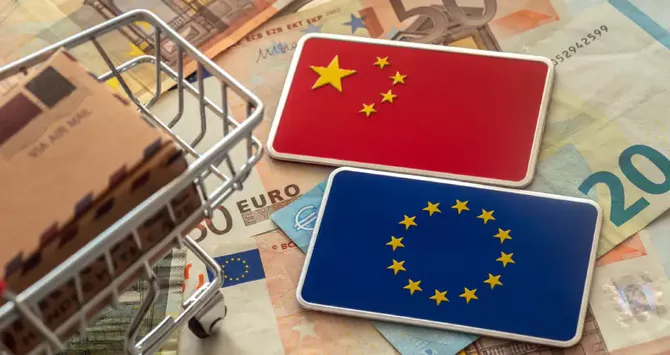
photo: cotidianul.md
Igor Yushkov, a leading analyst at the National Energy Security Fund and an expert at the Financial University under the Government of the Russian Federation, has shared his insights on why sanctions imposed on Lukoil and Rosneft are unlikely to significantly impact the global oil market.
The recent discussions surrounding the so-called “19th package of sanctions” have led to a number of misunderstandings. In reality, the 19th package refers specifically to the restrictive measures adopted by the European Union. Meanwhile, the United States has imposed its own sanctions targeting Lukoil and Rosneft. These decisions were announced almost simultaneously, which is why many observers assume they represent a single coordinated action, but the origins and underlying logic are different.
As for the oil market, I do not expect these sanctions to significantly change the global balance. Even though Lukoil and Rosneft are two of Russia’s largest oil companies, imposing sanctions on them will not lead to an immediate decline in production or exports. We have seen this repeatedly.
The United States had already placed Gazprom Neft and Surgutneftegaz on the SDN blocking list, yet oil production, refining, and exports continued. Sanctions do increase operational costs, yes, but they do not stop these companies from functioning.

photo: TASS
These increased costs stem from the need to build longer chains of intermediaries for export operations. This is crucial for foreign markets, where sanctioned companies are treated as toxic. As a result, a complex network of traders emerges, allowing oil importers in India and China, who now account for nearly 90% of Russian oil exports, to avoid direct transactions with blacklisted producers.
Washington continues trying to identify and sanction some of these intermediaries, but once it does, new ones immediately appear. It is a process with no end in sight.
The same applies to financial transactions. Payments must reach Russia safely, and every middleman in the chain takes a commission. That reduces the profitability of Russian oil companies, but not enough to force them to cut production.
If we want to understand price fluctuations in the oil market, the real driver right now is not sanctions, but Donald Trump’s rhetoric. He claims to have struck a deal with Prime Minister Modi under which India will begin reducing purchases of Russian oil. Such statements trigger volatility.
Just a few weeks ago, Trump declared that India was not purchasing any Russian oil at all, yet it turned out that volumes remained at 1.6-1.7 million barrels per day. Now he insists that India is gradually withdrawing from this market.
New Delhi remains silent. That silence is logical: if India denies Trump’s claims, prices will fall; if it confirms them, traders will push prices higher. In reality, it makes no economic sense for India to abandon discounted Russian barrels.
Why did prices spike? Because traders fear a hypothetical scenario: Russia loses access to the Indian market, needs time to redirect flows to China, and temporarily cuts production by 1.6-1.7 million barrels per day. That would push the market into deficit, sending prices sharply higher.
We already have a clear precedent. In 2022, after the initial wave of sanctions - the U.S. ban on Russian oil starting April 1 and Europe’s reduction in imports, Russia had to restructure its export geography. During that transition, production fell by 1 million barrels per day, and Brent rose above $120 per barrel. If the upcoming shift affects even larger volumes, speculation begins: Will oil reach $150? $200? No one knows.

photo: Al Arabiya
But why would India trigger such a crisis? Today, it buys Russian oil at a discount - around $60 per barrel. Eliminating that option would not only wipe out the discount, it would also drive global prices sharply higher. India would suffer, and so would the United States. It is worth remembering that U.S. fuel prices hit historic records in June 2022 precisely because of soaring global oil benchmarks. Republicans used that against President Biden.
Trump clearly wants to avoid a repeat scenario where he becomes the target of such criticism. Therefore, U.S. pressure on India is aimed not at blocking Russian oil entirely, but at negotiating favorable trade terms for the United States. The same logic applies to China.
So why have prices risen now? Because futures market players are betting on the worst-case scenario: what if Russia cannot redirect its barrels? What if U.S. sanctions actually bite? Even before anything changes on the ground, speculative buying pushes prices higher. And it is worth noting that sanctions on Lukoil and Rosneft will only take effect on November 21.
The situation is different for natural gas. Here, the EU’s measures do have a tangible impact. Europe has introduced restrictions on Russian LNG, for the first time targeting the commodity itself rather than equipment for LNG facilities. Beginning in 2027, imports of Russian LNG into the EU will be banned. Half a year from now, European buyers will also be prohibited from signing new short-term contracts. Short-term sales are eliminated first, and then all imports.
Pipeline gas remains untouched for now, due to opposition from Hungary and Slovakia.
Currently, Russian LNG supplies to Europe come exclusively from the Yamal LNG project, a private initiative that received major tax incentives at launch. With zero mineral extraction tax and no export duties, the Russian state earns almost nothing from these exports. Therefore, banning them will not affect Russia’s federal budget or foreign policy.
The EU’s motivation is different: Brussels wants to show Washington that it is helping clear the market for U.S. competitors. Under a trade agreement, the EU committed to increasing energy imports from the U.S. to $750 billion over three years, an impossible target, considering current volumes amount to only $60-70 billion per year. But Brussels must show commitment; otherwise, Trump can once again raise tariffs on European goods.
Yamal LNG cargoes will be redirected to Asia. Transport costs will rise, especially in winter, when parts of the Northern Sea Route are closed. But these are costs borne by a private company, not the state.
There is also a common question: Why did Washington and Brussels include subsidiaries of Russian companies on their sanctions lists? In fact, this is nothing new. Whenever sanctions hit a major corporation, all subsidiaries in which it owns more than 50% of shares - companies under its control - are automatically considered sanctioned entities.
And even if ownership later falls below 50%, that does not guarantee removal from sanctions. Gazprom Neft once controlled the Serbian oil company NIS. Its stake was later reduced, yet NIS remains under sanctions. We will see the same dynamics now.
It is important to emphasize that Rosneft and Lukoil have far more subsidiaries than those listed today. Only the most significant ones were added - around 30 companies in total.
Traders also regularly appear in sanctions packages, even when they are formally independent. Those who helped bypass export restrictions in Russia have been targeted. This includes firms from China and Central Asia (Kyrgyzstan, Kazakhstan, Uzbekistan) that acted as intermediaries in trading goods banned for direct export to Russia. Once detected, they are sanctioned, and new intermediaries immediately emerge. The process continues without end.

photo: Reuters
However, these measures do affect relations with third countries. Sanctions pressure from the EU on Chinese companies is perceived in Beijing as particularly hostile. China has no illusions about the United States, since Washington openly declares Beijing its main strategic rival. But the EU is viewed differently - as an actor lacking full autonomy. Therefore, Europe’s assertiveness is seen as a challenge to China’s interests. And China has the tools to retaliate.
This has already been demonstrated. After the Netherlands restricted semiconductor-related exports to China, Beijing immediately imposed countermeasures on critical raw materials, creating shortages in Europe. This dynamic shows that worsening relations harm Europe first.
Can the latest package be seen as the start of a more aggressive, hard-line sanctions policy? I would not say so.
In 2022-2023, Europe adopted broad sectoral sanctions that were painful for both Russia and European economies, including bans on seaborne Russian oil, petroleum products, and coal. At that time, Brussels was willing to pay the price. But later, sanctions shifted to targeted measures that avoided harming Europe itself, essentially, a pause in escalation.
Now we see a renewed effort to increase pressure on Russia, but again through measures that carry mutual costs, such as the LNG ban.
The United States, by contrast, remains in a safer position. Its economy is less dependent on Russian energy. But Washington remains cautious, fully aware of the risks. Rosneft is the world’s second-largest oil producer after Saudi Aramco. Any decline in its export capacity could trigger a global shortage.
The United States is a net importer of oil. Any major price surge would immediately hit U.S. consumers and fuel a political backlash. Washington understands this well. The goal of American sanctions is to increase Russia’s operational costs and reduce its revenues without disrupting global supply.
Ultimately, that is the logic: apply financial pressure on Russia while preserving global market stability.
Share on social media